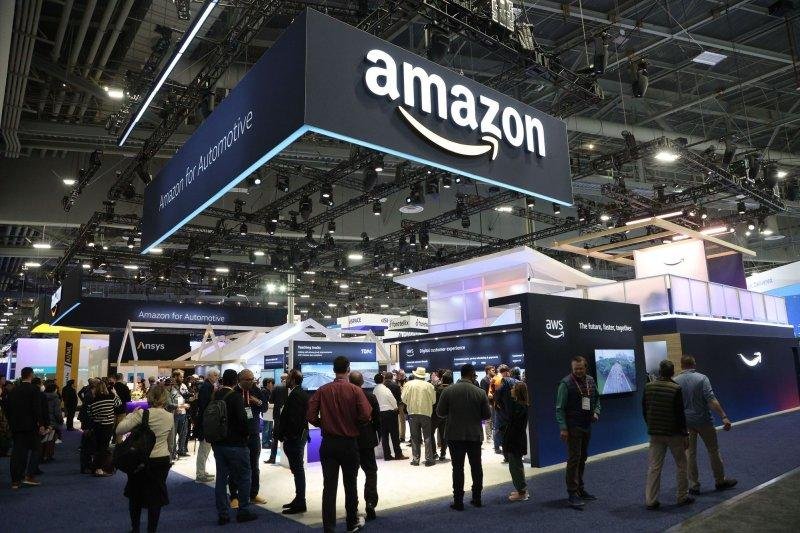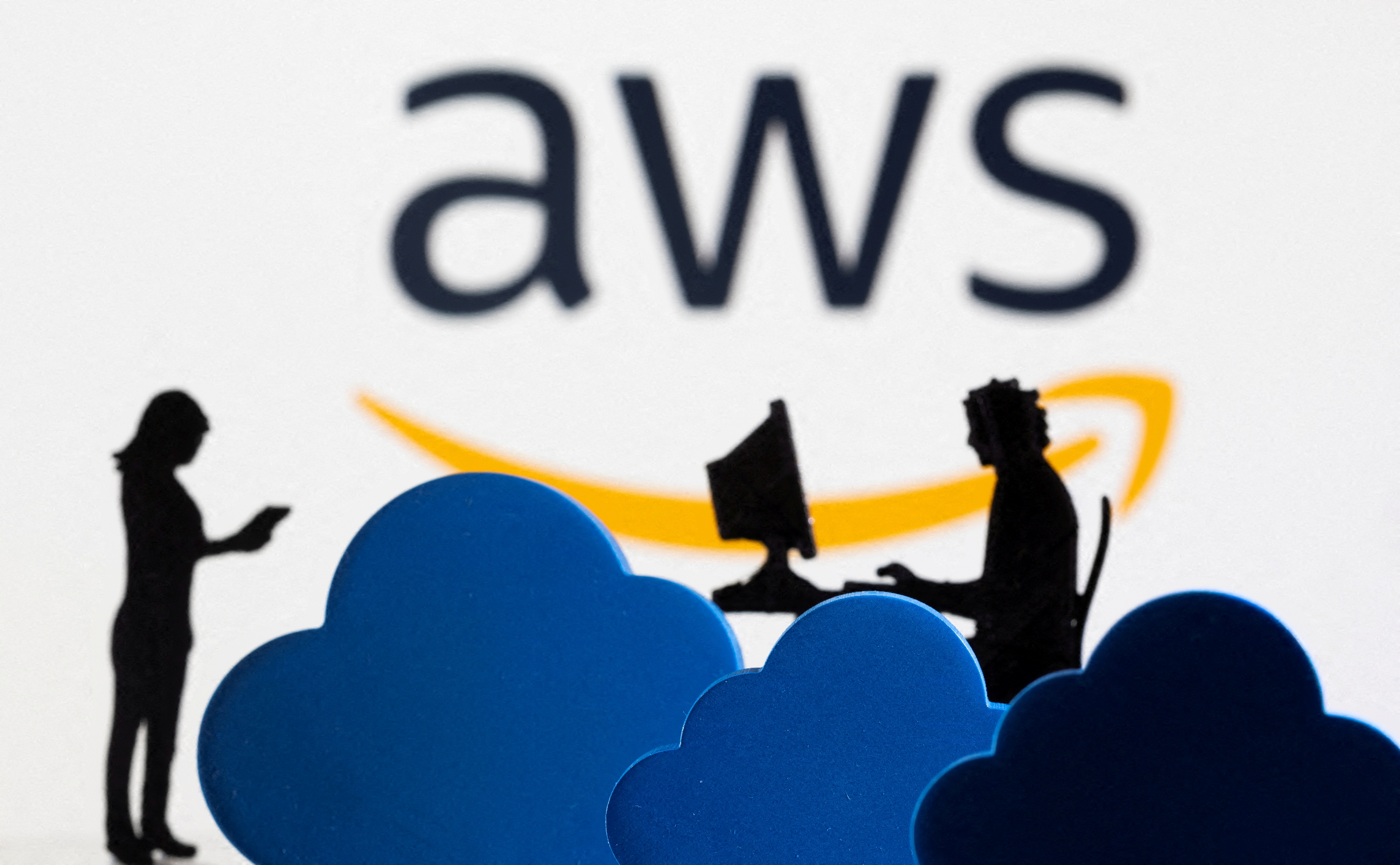UK Regulators Launch In-Depth Probe into Microsoft and Amazon’s Cloud Dominance

UK Regulators Launch In-Depth Probe into Microsoft and Amazon’s Cloud Dominance
In a significant move that underscores growing concerns over the dominance of tech giants, the UK’s Competition and Markets Authority (CMA) has initiated an antitrust investigation into Microsoft and Amazon, two major players in the cloud computing industry. The investigation, announced on Thursday, aims to scrutinize whether these tech behemoths are engaging in anti-competitive practices within the UK’s cloud infrastructure services market, which has become a cornerstone of the digital age.
Cloud computing services, provided by companies like Microsoft and Amazon Web Services (AWS), rely on vast networks of data centers worldwide to offer remote access to computing power and data storage. This cloud infrastructure underpins a multitude of online services, from email platforms like Gmail to cloud storage services such as Dropbox. As these services have become increasingly integral to businesses and consumers alike, the CMA’s decision to delve into this £7.5 billion market is a recognition of its vital importance.
The investigation was instigated following a report by Ofcom, the UK’s media and communications regulator, which highlighted that the cloud infrastructure market in the United Kingdom is highly concentrated, with limited competition. Ofcom’s referral of this matter to the CMA underscores the urgency and significance of the issue. CMA CEO Sarah Cardell emphasized the importance of effective competition in this market, stating, “Many businesses now completely rely on cloud services, making effective competition in this market essential.”
The CMA’s inquiry, which is expected to conclude by April 2025, represents the latest instance of European regulators intensifying their scrutiny of major tech companies. In recent years, regulators have implemented stricter rules in areas such as data protection and targeted advertising. The European Digital Services Act, which took effect in August, stands as one of the most comprehensive and ambitious efforts by policymakers to regulate tech giants, encompassing companies like Amazon, Apple, Google, Microsoft, Snapchat, TikTok, and Meta (the parent company of Facebook and Instagram).
Ofcom’s report, which laid the groundwork for the CMA’s investigation, revealed that Microsoft and AWS held a combined market share of 70-80% in the UK cloud infrastructure services market last year. Their closest competitor, Google, trailed behind with a share of 5-10%. Such a concentration of market power can raise concerns about stifling competition and limiting consumer choice.

One of the central worries expressed in Ofcom’s report pertains to the difficulties customers might face when attempting to switch between cloud service providers and utilize multiple suppliers. If such difficulties persist, they could hamper the ability of competitors to challenge the dominance of AWS and Microsoft effectively. In essence, these challenges could create barriers to entry for new players in the market and hinder existing providers from expanding their business.
Furthermore, the report raised concerns about the licensing practices of some cloud providers, with particular emphasis on Microsoft. These concerns may revolve around issues such as licensing costs, restrictions, or complexities that could potentially discourage customers from exploring alternative cloud service providers.
Both Amazon and Microsoft have responded to the investigation, pledging to cooperate constructively with the CMA. However, AWS, a subsidiary of Amazon, expressed disagreement with Ofcom’s findings. In a statement, an AWS spokesperson asserted that the findings were based on a “fundamental misconception of how the IT sector functions, and the services and discounts on offer.” AWS emphasized that the cloud has made switching between providers easier than ever, suggesting that customers have a wider range of choices than implied by the report.
The CMA’s investigation into Microsoft and Amazon’s cloud dominance raises several critical questions and implications for the technology industry, business landscape, and consumers in the UK and beyond. As the inquiry unfolds over the coming years, it will be closely watched to see whether it leads to changes in the competitive dynamics of the cloud infrastructure services market and potentially shapes the future of digital innovation in the region.

The essence of this investigation is to determine whether these tech giants are leveraging their market power to stifle competition and restrict consumer choice in the rapidly expanding cloud computing sector. While Microsoft, Amazon, and other major players in the industry have played a pivotal role in enabling the digital transformation of businesses and society at large, concerns over monopolistic practices and anti-competitive behavior have cast a shadow over their influence.
The central issue at hand is whether these dominant players are making it excessively challenging for customers to switch between cloud service providers or to utilize multiple providers simultaneously. This matters because a lack of flexibility and choice can impede innovation, limit cost savings, and potentially harm businesses that rely on cloud services to operate efficiently.
In recent years, cloud computing has become the backbone of the modern digital landscape. It enables businesses to scale their operations, access cutting-edge technologies like artificial intelligence and machine learning, and store vast amounts of data securely. Consequently, a competitive and diverse cloud services market is crucial to foster innovation, drive down costs, and ensure that businesses of all sizes can thrive in the digital age.
The concentration of market power in the hands of a few major players, as highlighted by Ofcom’s report, can lead to several adverse outcomes. First and foremost, it can deter new entrants from attempting to compete in the cloud services market. When a small number of companies dominate an industry, they can use their market power to create barriers that deter potential rivals from entering the market. This lack of competition can result in higher prices and reduced choices for consumers.
Furthermore, a lack of competition can stifle innovation. In a highly competitive market, companies are motivated to continuously improve their services and develop new technologies to stay ahead of their rivals. However, when a few companies have a stranglehold on the market, they may have less incentive to innovate, leading to slower progress and fewer advancements in cloud computing technology.
For businesses that rely on cloud services, such as startups, SMEs, and even large enterprises, the ability to switch between providers and access a variety of services is crucial. Lock-in to a single provider can lead to dependence and limited negotiation power, potentially resulting in higher costs and reduced flexibility. It can also hinder a business’s ability to adapt to changing market conditions or emerging technologies.
Ofcom’s report also drew attention to concerns about the licensing practices of some cloud providers, with Microsoft being specifically mentioned. While the report did not delve into specific details, licensing practices can significantly impact a company’s decision to choose a particular cloud provider. Complicated or restrictive licensing agreements can deter potential customers from considering certain providers, even if their technical offerings are competitive.
In response to the investigation, both Amazon and Microsoft have indicated their willingness to cooperate with the CMA. Such cooperation is a positive step and reflects the importance of addressing concerns related to competition in the cloud services market.
AWS, in particular, has disputed the findings of Ofcom’s report, suggesting that the regulator may have misunderstood the dynamics of the IT sector and the offerings available to customers. AWS pointed out that cloud providers have made switching between services easier than ever, emphasizing that customers have a wide range of choices at their disposal.

While these statements indicate a willingness to engage with regulators, it remains to be seen how the investigation will unfold and what remedies, if any, may be proposed to address any anti-competitive behavior or market concentration.
In conclusion, the CMA’s investigation into Microsoft and Amazon’s cloud dominance in the UK highlights the growing concerns surrounding the influence of tech giants in critical sectors of the economy. The cloud infrastructure services market plays a foundational role in powering digital innovation, and competition within this market is essential to ensure that businesses and consumers have access to a diverse range




